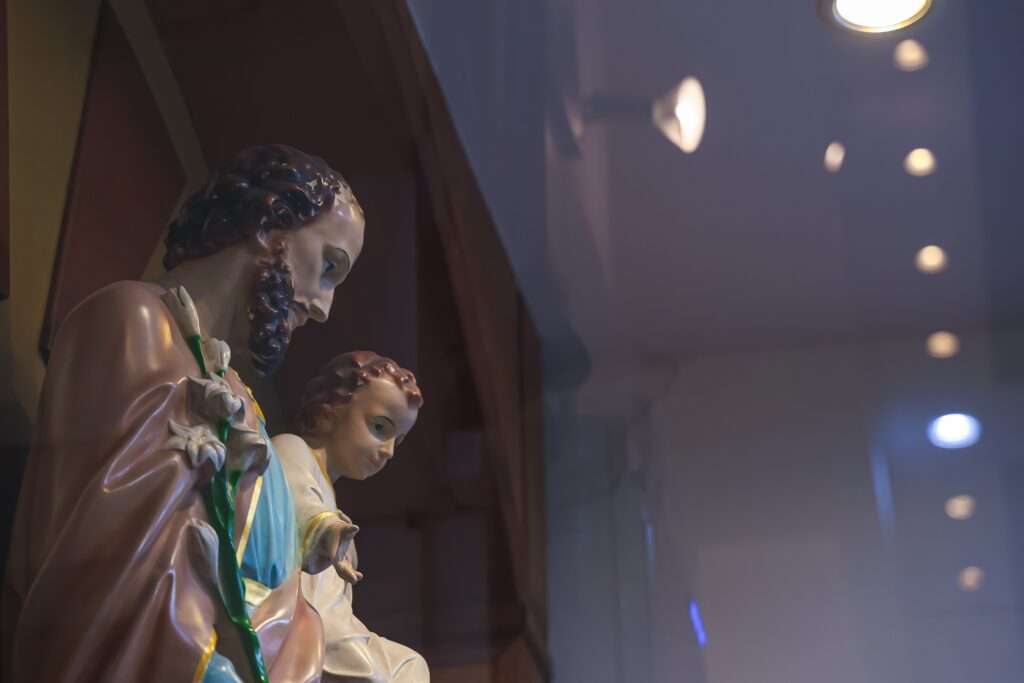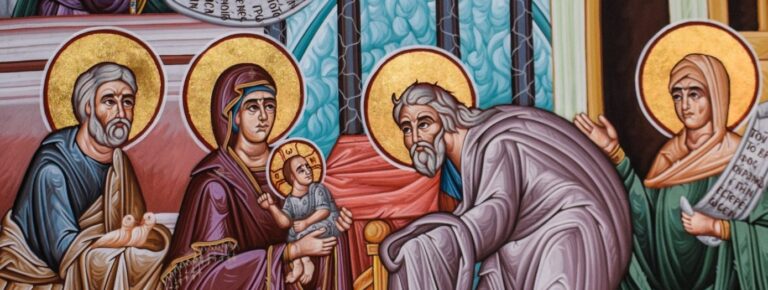
ST. JOSEPH: IN HONOUR OF REAL DADS

Adapted from There Must be a Pony in Here Somewhere: Everyday Stories of God’s Goodness by Michael and Christine Way Skinner (Novalis, 2020)
I am proud that I was made a Dad through adoption. One night, when my son Patrick was about six years old, he asked me the inevitable question every adoptive father hears.
“Dad?”
“Yes, Patrick.”
“You’re not my real dad, are you?”
“What do you mean by ‘real dad,’ honey?” I inquired.
“You know, the man who made me.”
“Well, God made each of us;’ I said, “but no, I am not the man who made you.’
Then I asked, “Besides making you, what kinds of things do real dads do?”
“They tell stories,” he replied, and then listed all the things we do together: “They cook and clean; they take you to the park; they teach you things like how to make bows and arrows.”
“Who does those things for you?” I asked.
“You, Dad.”
“So, sweetheart, if you had to answer the question ‘Who is your real dad?’ what would you say?”
“You, Dad!”
Ask any Roman Catholic who the real father of Jesus is, and you will likely receive the reply, “God.” Many of us are clear in our understanding that St. Joseph was not the “real” father, but the “foster” or “adoptive” father of Jesus. Sometimes the way these words are used, there is a sense that they mean the opposite of “real.” I wonder if, when used this way, we dishonour the sacred and essential role St. Joseph played in the life of Jesus. I will venture to offer that this man’s role in Jesus’ life is often undervalued and unexplored in our spiritual life.
I feel a strong connection to St. Joseph. Like him, I am not the biological father of my children. However, I think we can say St. Joseph and I both are “real” fathers. Fatherhood is founded not only on biology but on love, commitment and sacrifice.
To say that St. Joseph was the “real” father of Jesus means that he was the one who cared for and offered stability to his family. As the “real” father of Jesus, he was the man who modelled gentle strength for Jesus. It is likely that Jesus learned compassion and generosity from his earthly father as well as from Mary, his mother. We can assume that St. Joseph was a strong mentor for Jesus, who followed in his father’s footsteps and eventually became a carpenter himself. How many lessons about life must have been taught and learned as the two worked together in their shop? I would also like to think that St. Joseph wiped Jesus’ runny nose, kissed his skinned knees and cuddled him when he needed love and care. These are things I found myself doing for my children daily. Surely, Jesus’ humanity required the same of his earthly father.
Probably, Jesus’ greatest tribute to St. Joseph was in teaching us to call God “Abba.” In Aramaic, this means “Daddy.” As all children do, we learn about God through our human experiences. St. Joseph’s example to Jesus of what it meant to be a father must have been tender and merciful, compassionate and loving. In St. Joseph, Jesus experienced the “fatherhood” of the God of love. Because of this, Jesus was able to challenge the people around him to surrender their fears of a distant and angry God and replace them with an experience of intimate connection to a loving “Daddy” God. Surely, it is reasonable to assume that Jesus’ earthly father helped him in forming this understanding.
Both God and St. Joseph, therefore, can be spoken of as the “real” fathers of Jesus.
And yes, Patrick, I am your real dad.
Michael Way Skinner is a retired Coordinator of Religion, Family Life and Equity
with the York Catholic District School Board. He was a contributing author to World
Religions: A Canadian Catholic Perspective, and co-authored There Must be a Pony in Here Somewhere (Novalis, 2020) with his wife, Christine Way Skinner. Michael is a public speaker and award-winning educator who is deeply committed to faith as a source for inclusion and justice.



Thank you for your heart warming article. God bless you.